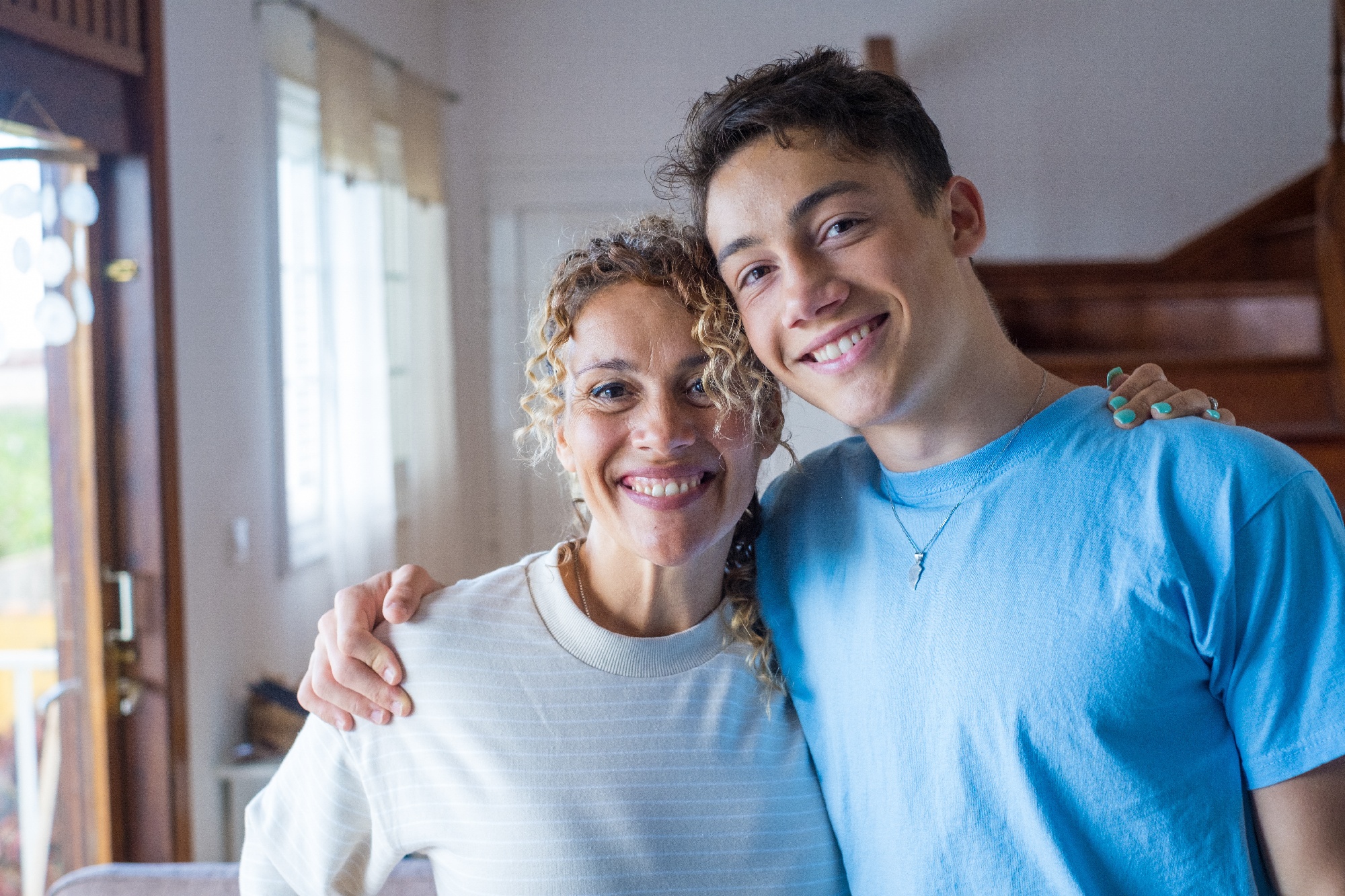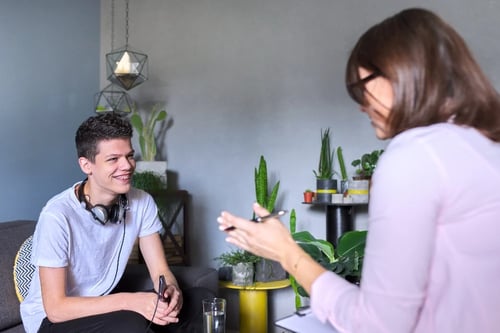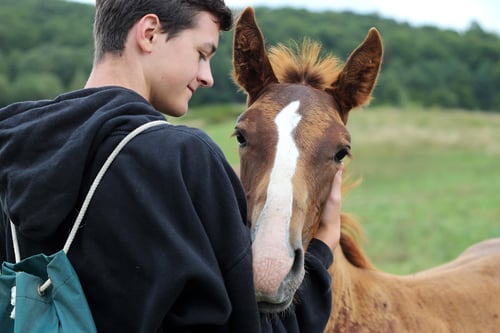What are Positive Childhood Experiences
& Why Do They Matter?
Parenting an adolescent can be filled with challenges, but it is also an opportunity to help shape your child into a thriving, happy adult. While it’s natural to worry about protecting your teen from harm, research shows that focusing on providing positive experiences can be just as important for their development. Here’s an overview of positive childhood experiences, why they matter, and tips for promoting them.

Table Of Content
- Parenting Teens: Challenges & Opportunities
- What are Positive Childhood Experiences?
- Why Do Positive Childhood Experiences Matter?
- Tips for Promoting Positive Experiences
Parenting Teens: Challenges & Opportunities
Parenting an adolescent can be filled with challenges, but it is also an opportunity to help shape your child into a thriving, happy adult. While it’s natural to worry about protecting your teen from harm, research shows that focusing on providing positive experiences can be just as important for their development. Here’s an overview of positive childhood experiences, why they matter, and tips for promoting them.
What are Positive Childhood Experiences?
Positive childhood experiences (PCEs) are events, relationships, or environments that make a child feel nurtured, valued, and supported. While adverse childhood experiences like trauma or neglect can negatively impact development, PCEs can help build resilience and well-being.
PCEs fall into three main categories:
- Nurturing relationships: Feeling consistently loved, supported, and cared for by family and friends. Developing trust, empathy, and strong social skills.
- Sense of belonging: Feeling included, valued, and that you matter to those around you. This can come from family, school, activities, culture, or community.
- Developing strengths: Having opportunities to gain skills, confidence, efficacy, and a growth mindset through achievement, creativity, sports, clubs, etc.
The more positive experiences a child has, the better their developmental outcomes tend to be. Even if a child faces challenges, PCEs can counterbalance those effects by promoting skills like adaptability, healthy relationships, and emotional regulation.
Why Do Positive Childhood Experiences Matter?
Science continues to demonstrate just how important positive childhood experiences are for adolescents’ health and success. Here are some of the key benefits researchers have uncovered:
- Promotes resilience: Having a solid foundation of nurturing relationships and positive experiences makes adolescents more resilient when faced with stress or adversity. This fortifies them emotionally and physiologically against potential lifelong effects of trauma.
- Builds self-esteem: PCEs reinforce for teens that they are valued and the world is generally a safe, welcoming place. This cultivates positive self-regard.
- Enhances mental health: Adolescents with more positive experiences are less likely to suffer from conditions like depression and anxiety or engage in substance abuse. Warm family environments can even reverse predispositions to mental illness.
- Improves academic performance: Supportive home environments with involved parents lead to better school engagement, grades, test scores, and college attainment.
- Strengthens peer relationships: Teens who feel secure and valued at home have an easier time developing healthy friendships and social skills.
- Reduces risky behaviors: Positive childhood experiences are associated with lower rates of violence, delinquency, and risky sexual behaviors in teens.
- Boosts overall well-being: Adolescents who feel regularly encouraged and validated enjoy better physical health, sleep quality, and life satisfaction—assets that persist into adulthood.
While adverse experiences can negatively impact teens, positive experiences have the power to counterbalance those effects and put them on the path to becoming happy, healthy adults.
Tips for Promoting Positive Experiences
The good news for parents is that small gestures and conscious choices to foster your teen’s development can pay big dividends now and later in life. Consider these tips:
- Express affection regularly: Hug, say “I love you,” and find small ways to convey unwavering support.
- Engage in conversation: Listen closely, seek their perspective, and discuss subjects that interest them.
- Share meals together: Make time for regular family dinners without distractions to connect.
- Offer guidance: Provide reasonable limits to make them feel secure but avoid being overly harsh or critical.
- Take an interest: Ask about their friends, activities, and feelings to show you care.
- Encourage passions: Enable them to pursue sports, arts, clubs, or causes they care about.
- Celebrate wins: Notice small accomplishments and growth; praise effort over perfection.
- Find mentors: Help connect them to other supportive adults like coaches, teachers, or religious leaders.
- Limit screen time: Set boundaries around technology to make space for in-person connections.
- Foster independence: Let them develop their identity by making age-appropriate choices.
- Share your values: Discuss what matters most to you like kindness, honesty, or activism.
- Volunteer together: Giving back cultivates empathy, collaboration, and a sense of purpose.
- Advocate for school: Ensure teachers nurture strengths and show interest in your teen’s development.
- Widen their world: Expose them to new cultures, ideas, and places to broaden their perspectives.
The teenage years offer chances for wonderful bonding, growth, and positive childhood experiences. By providing consistent love, support, and life lessons, parents can make an immense difference in a child’s well-being—both now and for decades to come.
Let Idaho Youth Ranch help your teen
Teen Counseling
Our masters-educated and trained therapists and counselors have the experience your young person needs to find healing.
Family Counseling
Idaho Youth Ranch can help your family reconnect, open up lines of communication, and build more positive relationships.
Group Counseling
Group therapy helps young people, ages 9 to 24, to address trauma, dangerous behaviors, troubling feelings or experiences.
Equine Therapy
Working with horses has been a proven method of emotional recovery and one of the unique services offered by Idaho Youth Ranch.


.webp?width=500&height=334&name=Idaho%20Youth%20Ranch%20Family%20Counseling%20(1).webp)

